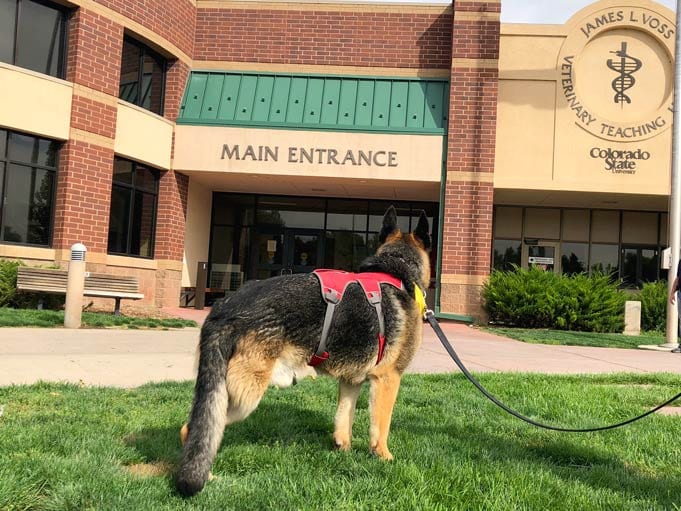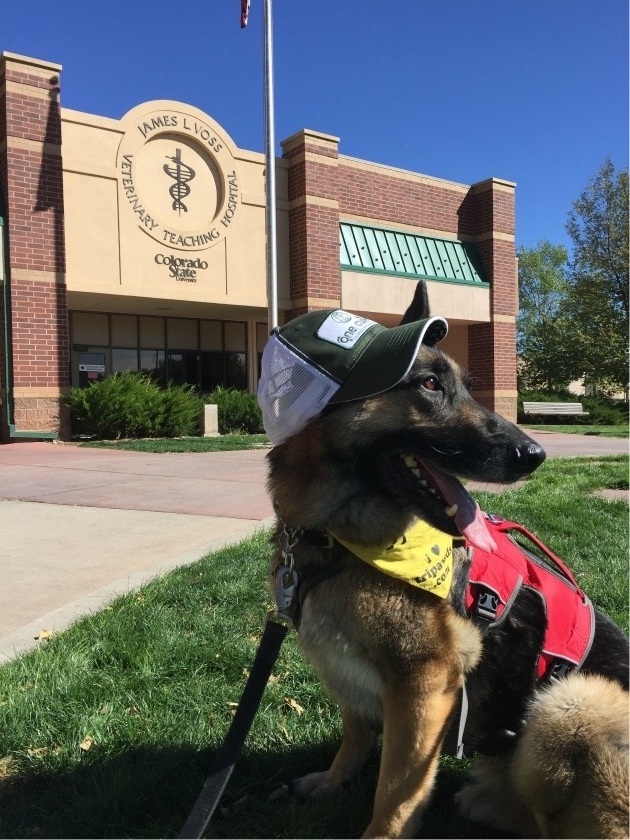When the pandemic hit, pet cancer didn’t stop. And neither did important work, like the multi-site dog cancer vaccine study, or osteosarcoma treatments at Colorado State University. In a recent panel discussion, “Meeting the Challenge: Cancer Hasn’t Taken a Break, the Flint Animal Cancer Center team shares how their work continues through the ups and downs of the pandemic.
Quick Facts About the Dog Cancer Vaccine and Osteosarcoma Treatment News

Moderated by the founder of The Flint Animal Cancer Center (FACC), Dr. Stephen Withrow, the panel also included the FACC director, Dr. Rodney Page, director of clinical research Dr. Doug Thamm, and head of the FACC oncology service Dr. Susan Lana. They discussed the many veterinary oncology protocol changes made on a dime when the pandemic hit, and how their groundbreaking work continues. Here are two highlights you’ll want to know about:
Healthy Dogs Wanted for the Vaccine Against Canine Cancer Study
The Vaccine Against Canine Cancer Study vet researchers are still actively recruiting healthy dogs in Colorado, Wisconsin and Northern California. For instance, Colorado State needs 135 more dogs to reach their goal of enrolling 285 canines. Dr. Thamm said “We still have some work to do, we still need some patients.” He tells more about the study here:
This is the first study of its kind to develop a dog cancer vaccine that will prevent a wide number of cancers in dogs (and potentially, people). Healthy family dogs of certain breeds or mixed, 5.5 years or older, will be randomized to receive either a series of vaccines similar to other routine vaccines that are given to dogs currently, or placebo vaccines.
Participating dogs must live within 150 miles of participating sites: UC Davis, Colorado, State, and University of Wisconsin. This is because they’ll need to visit the university 2-3 times yearly for five years after enrolling. Pet parents can receive a financial incentive to defray the cost associated with diagnostics and treatment of any cancers that dogs develop, regardless of whether they are receiving vaccine or placebo.
Does Your Dog Qualify for this Study?
- Owners must live within 150 miles of one of the participating trial sites
- Be between 5.5 and 11.5 years of age
- Weigh at least 12 pounds (5 kg)
- No history of previous cancer
- Can’t have significant illness that could result in a life span of less than 5 years
- No history of previous autoimmune disease
- Must not be taking oral or injectable immunosuppressive medications
- Only breeds listed here are eligible
“It’s a win-win-win, I think, for everyone. We would love to have additional participation,” says Dr. Thamm.
Learn More About the Dog Cancer Vaccine Study

Osteosarcoma Treatment News
And last but not least, one of the highlights of the panel discussion was when our question was chosen for the Q&A! We asked:
“Are there any exciting new developments in the treatment of osteosarcoma in dogs?”
Dr. Lana was the first to tackle our question. She reported that osteosarcoma treatment in dogs is still mostly comprised of pet cancer treatments like chemotherapy, stereotactic radiation therapy and surgical limb-sparing. But when considering all the options, “I think we’re getting a lot better about being able to select which therapy might be best suited for which patient,” she explained. She and Dr. Thamm went on to report that pet cancer clinical trials around the country are tackling metastatic disease once it’s occurred:
As you can see, COVID turned the world upside down, but exciting veterinary oncology research and compassionate cancer care is still happening behind the scenes. Through pandemics and beyond, the team at Colorado State University’s Flint Animal Cancer Center is working hard to give every animal a fighting chance at beating this disease.
Very interesting. Sure wish we lived closer to one of those trial places. Would be interesting but nope we don’t. 🙁
Thanks for keeping us informed
Michelle & Angels Sassy, Bosch and Baby Simba